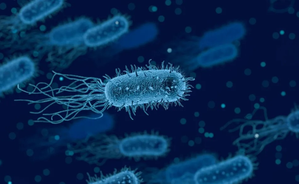Jerusalem, January 6 (IANS). Israeli researchers have discovered a system in marine bacteria that protects them from virus attacks, the Israel Institute of Technology said in a statement.
A new study published in Nature Microbiology focused on the conflict between bacteria and phage, which is a virus that infects bacteria, Xinhua news agency reported. This constant conflict leads to mutual evolution of these two populations in the marine environment.
In some areas, viral infection greatly reduces large populations of bacteria and without resistance mechanisms the bacteria are destroyed.
Studies have shown that bacteria use a passive defense mechanism against viruses, which involves extremely low doses of molecules in protein formation.
The research also examined the relationship between the marine bacterium Synechococcus and phage Syn9.
Synechococcus is very important in this because it receives energy from light and produces oxygen which makes it very important for marine life.
The researchers found that Synechococcus reduces the levels of transfer RNA by resisting Syn9, which is an essential molecule for the gene.
When tRNA levels are normal, bacteria are more susceptible to the virus, but when tRNA levels are reduced, resistance increases.
This pattern of resistance is passive, in which loss of certain intracellular functions enhances the ability of the bacteria to survive viral infection.
The researchers found that this resistance does not prevent the phage from entering the bacterial cell, but rather prevents the formation of new viruses, allowing the bacteria to survive.
Researchers found in this research that bacteria gradually discovered a way to survive the attack of the virus, which meant that bacteria with low tRNA levels survived longer and this led to the generation of new generations of bacteria protected from the virus. .
The research found that this resistance technique not only works between Synechococcus and Syn9, but it also works on other things.
–IANS
MKS/AS










